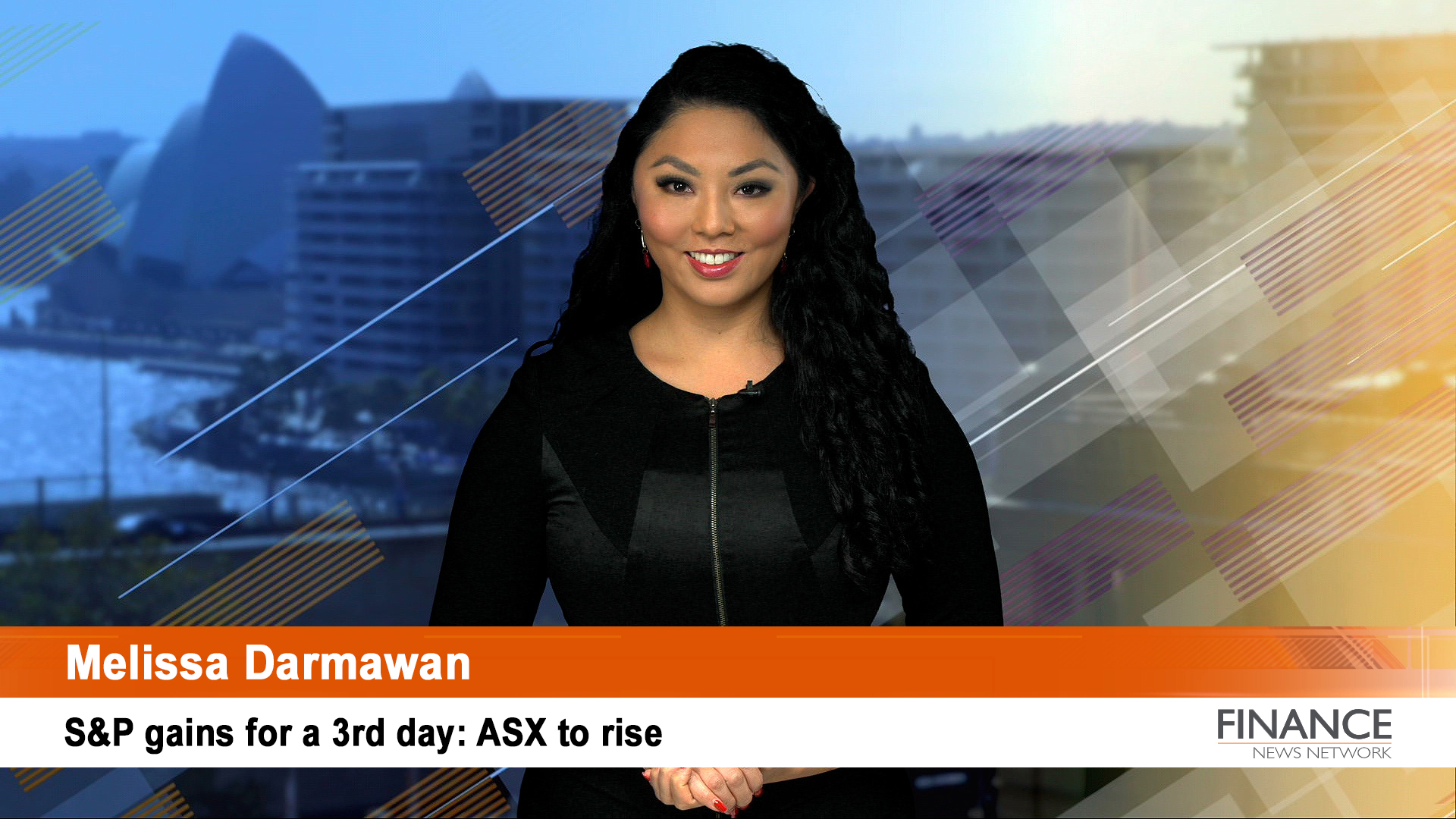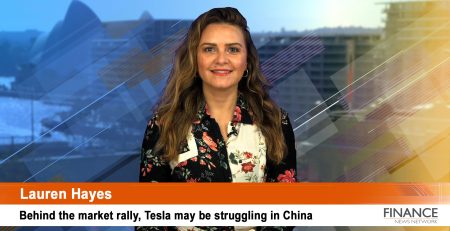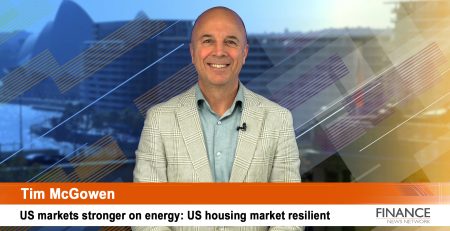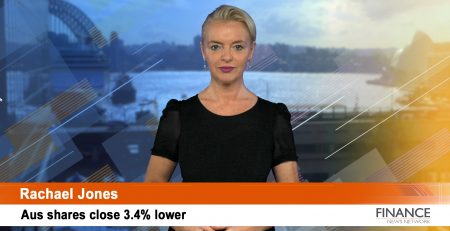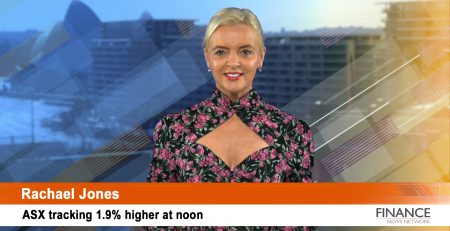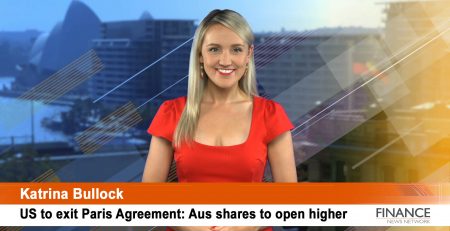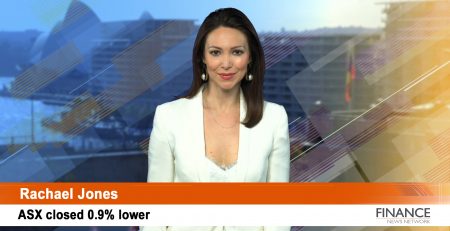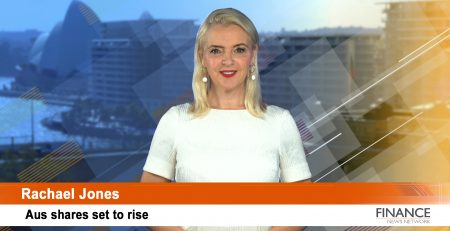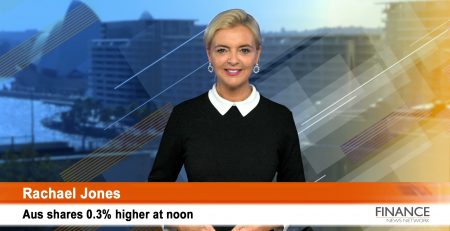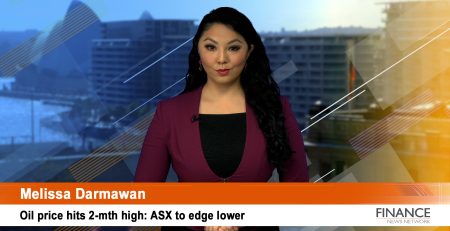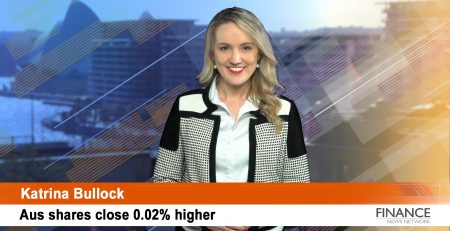S&P gains for a 3rd day, Costa, Sims, Janus Henderson, Westpac, CBA, NAB on watch today: ASX to rise
Wall St turns higher after recession fears recede, following a weak finish around the globe. China announced a lockdown in Shanghai following a surge in Covid-19 cases as it maintains its zero Covid-19 stance, sending oil prices and energy stocks lower. A deep dive on what a soft landing is. AUD under 75 cents ahead of retail sales data today.
Good morning. Stocks turn higher. I’m Melissa Darmawan for Finance News. This is your market outlook.
The Australian sharemarket is set to rise after we saw weakness around the globe.
S&P 500 gains for 3rd straight day led by tech
US stocks closed higher, extending its two weeks of gains as we close off the quarter this week, recovering almost all the losses since Russia invaded Ukraine over a month ago amid the persistent challenges and headwinds.
Market participants have been monitoring bond yields after they reached their highest level in three years. Recession concerns have been rising after the US treasury yield curve inverted for the first time since 2006 in the recent period.
Building from yesterday, yield curves usually slope upwards which tends to indicate a strong economy amid rising inflation and rising interest rates. A flat yield curve represents less optimism from investors about economic growth, while an inverted yield curve flags a recession is likely based on the historical figures – it’s a big balancing act from all central banks this year.
Soft landing vs hard landing
We have seen several central banks hike interest rates to combat hot inflation while trying to avoid an economic recession, and a term used to describe this is called a “soft landing”. So this is when central banks raise interest rates just enough to stop it from overheating and suppress inflation without hurting the job market, meaning see the number of unemployed people rise. A hard landing is when the economy is approaching a recession versus avoid one.
JPM says lead-lag could be as long as 2 years
Meanwhile, a note from JP Morgan's own chief global strategist said that despite concerns that we're seeing from the bond market, these warning signs of an inverted yield curve do not necessarily see a recession in the near term.
“Recessions don’t typically start ahead of the curve inverting, and the lead-lag could be very substantial, as long as 2 years… Further, over this timeframe, equities tended to beat bonds handsomely,” adding that the peak in equity markets historically takes place around a year after the inversion.
It appeared that traders mulled on this note where we initially saw a mixed market, which turned higher as dip buyers emerged to help lift Wall St higher.
Billionaire minimum income tax
President Biden talked about the fiscal year 2023 budget which includes a new tax on the richest Americans and increased military spending. The budget is set to include a billionaire's tax plan where it would tax 20 per cent of a billionaire's minimum income tax and also whatever they made in unrealized gains. So that means that every billionaire would have to pay a minimum of 20 per cent of their income. It also applies to households worth more than US$100 million.
Diplomats to meet in Turkey for new round of peace talks
Investors are continuing to watch as negotiators from Russia and Ukraine are set to meet in the next 24 hours in Turkey for another round of peace talks. Ukrainian President Volodymyr Zelenskyy said that he's ready to compromise with Russia, only if he can meet face to face with Russian President Vladimir Putin.
China demand crimp sends crude tumbling
Elsewhere oil prices plunged over 9 per cent on concerns about slower demand from China due to new Covid-19 lockdowns in effect in Shanghai, its largest city with more than 25 million residents, by dividing the city into two testing zones over the next nine days. The city is also the home to Tesla and Volkswagen factories which are set to be closed along with being the Chinese headquarters for many multinationals.
China is the biggest oil importer in the world and so lower demand from the significant market does play a direct role on prices. The expected new round of peace talks overseas also brings those prices down. Meanwhile, a deal between the US and European Union reached late last week to shore up the EU’s energy supply amid the war raising some concerns.
Experts say the plan to secure the boosted energy supply for the EU is not enough to substitute the Russian supply, adding that the governments and private industries will need to help while Europe will need to look at different sources of energy. A very interesting point, if we go back to history, in the 1970s there was a demand decline, which prompted the first shift towards energy-saving technologies. The focus on electric vehicles could grow as we touched on last month.
AUD under 75 cents ahead of retail sales data
After a strong week, the Australian dollar is now under 75 cents to the greenback ahead of the retail sales figures today at 11.30am EST. So far the Aussie dollar has had a gain of around 3.5 per cent thanks to the fact that we are a resource rich country.
Figures around the globe
At the closing bell, the Dow Jones gained 0.3 per cent to 34,956, the S&P 500 added 0.7 per cent to 4,576 and the Nasdaq rose 1.3 per cent to 14,355.
Across the S&P 500 sectors, energy was the worst performer, down 2.6 per cent, followed by materials, and financials. Risk was back on as there were more winners with consumer discretionary, up 2.7 per cent, followed by real estate and information tech, up 1.3 per cent each.
The yield on the 10-year treasury note fell by 4 points to 2.45 per cent while the 2-year yield rose by 4 points to 2.34 per cent, we saw a yield curve inversion on the medium to longer term treasuries, the 5 year and the 30 year, gold rose on a stronger greenback.
Across the Atlantic, European markets closed mixed. Paris gained 0.5 per cent, Frankfurt added 0.8 per cent while London’s FTSE fell 0.1 per cent.
On the London Stock Exchange, Rio lost 1.1 per cent, BP dropped 2.8 per cent and Shell fell 2.3 per cent.
Asian markets closed mixed. Tokyo’s Nikkei fell 0.7 per cent, Hong Kong’s Hang Seng gained 1.3 per cent while China’s Shanghai Composite added 0.1 per cent.
Yesterday, the Australian sharemarket closed 0.1 per cent higher at 7,412, rallying for its fifth straight session to a 10-week high, lifted by miners and banks, offsetting losses with information tech continuing to lag. BHP (ASX:BHP) jumped 2.3 per cent to $50.92 as eligible shareholders received their dividends, with over $10 billion paid.
SPI futures
Taking all of this into the equation, the SPI futures are pointing to a 0.5 per cent gain.
Local economic news
The Australian Bureau of Statistics (ABS) is set to issue February retail trade data. Economists expect a 0.9 per cent rise with the range going from a fall of 1 per cent to a rise up to 1.5 per cent. This is despite the flooding in NSW and Queensland which could weigh on sales..
Also keep an eye out for ANZ and Roy Morgan’s weekly consumer sentiment reading.
Tonight, the Federal Budget is set to be handed down, a closely watched one ahead of the upcoming election slated in May. It’s expected that a big focus of the budget will be around the cost of living and how the government will help alleviate household pressure. Aussies are grappling with higher prices at the shops, supermarkets, and at the pump.
The government has refrained from revealing the details on new policy spending. However, the Treasurer has flagged that spending will be on “productivity enhancing investments”.
On the other hand, it’s expected that elevated commodity prices and the stellar performance of the economy is set to ripple into stronger revenues for the government. This will help improve the bottom line and fund new pre-election policy priorities, without worsening the budget deficit.
What to keep an eye out for today
Technology stocks could be eyeing that peak, set to buck its 2-day losing streak while energy stocks might be sitting at the bottom of the ladder. Amid the iron price rising despite the uneasiness around what it means for the lockdowns in China, miners could also be set to rally.
Wilsons has upgraded Costa’s (ASX:CGC) rating to overweight from market-weight with a price target of $3.66, an increase of 16 per cent from yesterday’s closing price.
Sims (ASX:SGM) is set to host its investor day today. Currently there are 8 buys, 2 holds and 1 sell on this company.
Fitch Ratings has affirmed Commonwealth Bank of Australia (ASX:CBA), National Australia Bank’s (ASX:NAB), and Westpac’s (ASX:WBC) rating of 'A+'.
News of Janus Henderson’s (ASX:JHG) chief investment office retiring could see the needle move for this stock today.
Also, let’s see which direction the Aussie dollar heads today as we have a big day of data ahead.
Ex-dividend
Southern Cross Electrical Engineer (ASX:SXE) is paying 1 cent fully franked
Dividend-pay
There are six companies set to pay eligible shareholders today
Australian Pharmaceutical Industries (ASX:API)
Bluescope Steel (ASX:BSL)
EQT Holdings Holdings (ASX:EQT)
Grange Resources (ASX:GRR)
Northern Star Resources (ASX:NST)
People Infrastructure (ASX:PPE)
Commodities
Iron ore has gained 1.1 per cent to US$152.40. Its futures point to a 1.1 per cent gain.
Gold has lost $34.30 or 1.8 per cent to US$1926 an ounce. Silver is down $0.61 or 2.4 per cent to US$25.00 an ounce.
Oil has plunged $10.49 or 9.2 per cent to US$103.41 a barrel.
Currencies
One Australian Dollar at 7:50 AM has weakened from yesterday, buying 74.93 US cents (Mon: 75.07 US cents), 57.24 Pence Sterling, 92.83 Yen and 68.21 Euro cents.
Copyright 2022 – Finance News Network
Source: Finance News Network

